Contact lenses vs. glasses: What’s better?

Table of contents
Choosing between contact lenses and glasses is a decision many people face when it comes to correcting their vision. Both options have their benefits and drawbacks, and the final choice depends on personal preferences, lifestyle, and specific needs.
In this article, we compare contact lenses and glasses to help you determine which option is better suited for you. We also discuss how to switch from prescription glasses to contact lenses, should you decide to make the change. If you’re struggling to choose, know that many can have the freedom and flexibility of both!
Contact lenses

Contact lenses are a convenient alternative to traditional eyeglasses. They’re available with different wearing periods, so you can wear them as little or as often as needed. Monthly contacts, which can be worn every day for up to 30 days, are a common choice. Daily, bi-weekly, and extended wear lenses are also available.
So are contact lenses better than glasses? Check out some of the other advantages and disadvantages of contact lenses to consider below:
Pros of contact lenses
- Natural and unobstructed vision: Contact lenses provide a wider field of view compared to glasses as they move with your eyes, allowing for a more natural visual experience.
- Enhanced aesthetics: Many people prefer contact lenses as they don't alter their appearance. You can showcase your natural features or your expert eye makeup skills without glasses frames.
- Freedom during physical activities: Contact lenses are ideal for sports and other physical activities as they don't obstruct your movements or risk falling off. Daily disposable contacts are convenient if you wear lenses infrequently or only for certain activities.
- Correction for various vision issues: Contact lenses are available in different prescriptions, enabling correction for nearsightedness (myopia), farsightedness (hyperopia), astigmatism, and even multifocal needs.
Cons of contact lenses
- Higher maintenance: Contact lenses require regular cleaning, disinfection, and proper storage to maintain eye health and prevent infections.
- Potential discomfort: Some individuals may experience discomfort or dryness when wearing contact lenses, particularly if their eyes are sensitive or prone to allergies. You may only experience a bit of mild discomfort when first getting used to contacts.
- Cost: Contact lenses can be more expensive than glasses, which generally have one upfront cost, especially if you opt for daily disposables or need specialised lenses.
- Risk of eye infections: Learning how to take care of contact lenses is important. If not properly cared for, contacts can increase the risk of eye infections. It's crucial to follow proper hygiene practices and consult with an eye care professional.
While not necessarily a disadvantage for everyone, certain eye conditions or health issues may make wearing contact lenses harder or impossible for some individuals. However, advancements in lens technology have resulted in the availability of specialised contact lenses for conditions presbyopia, offering more options for vision correction. Your eye care specialist can help you determine if lens wear is right for you.
Glasses
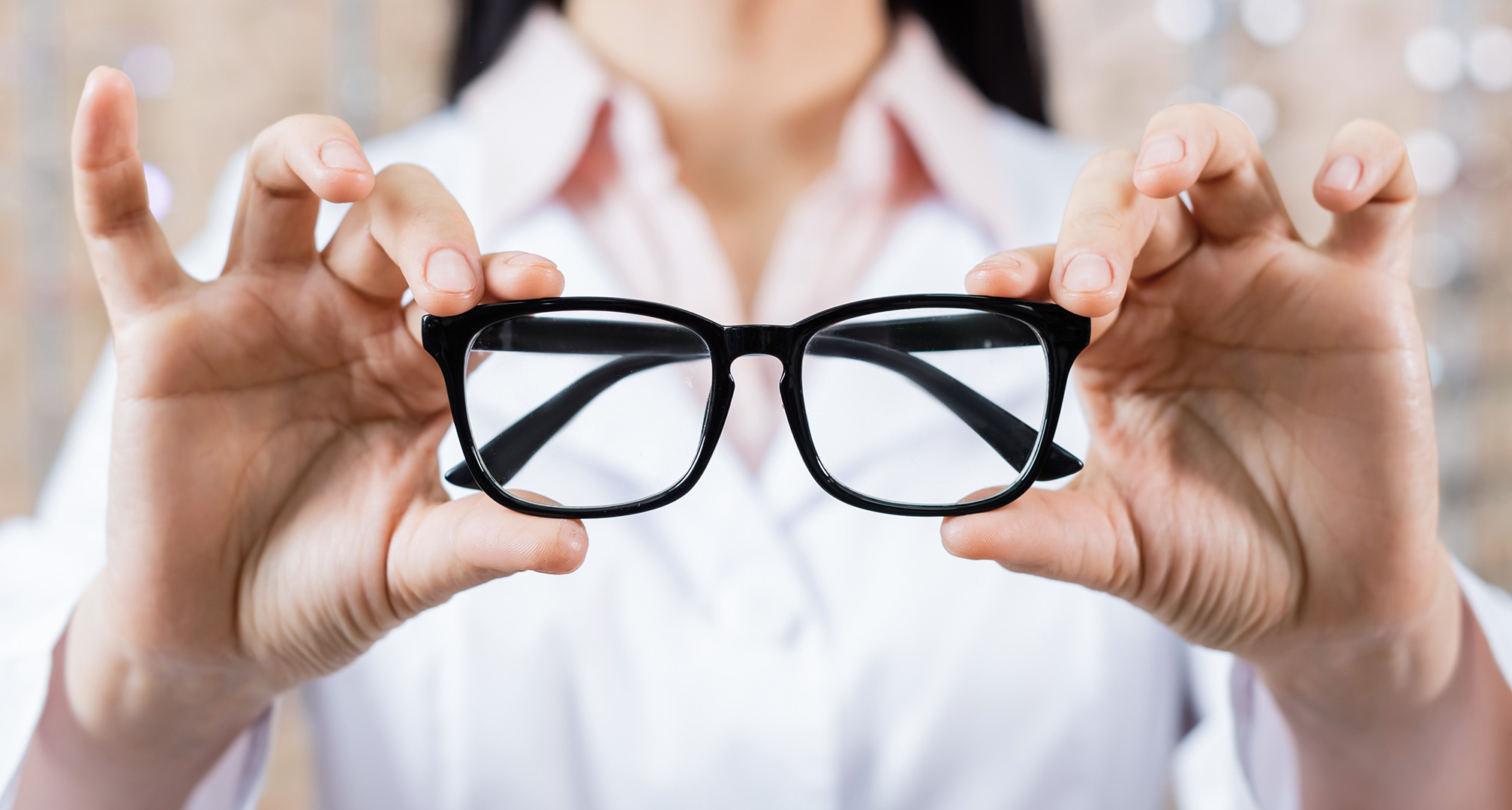
Prescription glasses have long been a popular choice for vision correction. They're often the first thing that comes to mind when someone considers vision correction. Spectacles are an effective and straightforward way to tackle myopia, hyperopia, and a range of other visual impairments.
With many different styles, people often opt for glasses as a fashion statement in addition to a corrective solution. Below are some of the pros and cons of wearing glasses:
Pros of glasses
- Ease of use: Glasses are simple to use and require minimal maintenance. It’s as easy as putting them on when you need them and taking them off when you don’t!
- Wide variety of styles: Prescription glasses offer numerous frame styles, colours, and designs, allowing you to express your personal style and enhance your facial features.
- Protection for the eyes: Glasses provide a physical barrier that shields the eyes from dust, debris, and wind that can be irritating to your eyes.
- Affordability: In many cases, glasses are a more cost-effective option compared to contact lenses, particularly if you don't require frequent prescription changes.
Cons of glasses
- Limited peripheral vision: The frames of glasses can obstruct your peripheral vision, leading to reduced awareness of your surroundings.
- Distorted vision: Some higher strength prescription glasses or those for astigmatism can distort vision around the edges of the lenses (sometimes called the "fishbowl" effect). This should subside as you adjust to new glasses and if you wear your glasses regularly.
- Interference with physical activities: Glasses aren’t the most practical option for certain physical activities, as they can slip off or get in the way.
- Reflection and glare: Without anti-reflective coatings, glasses can reflect light, which may be distracting and affect visual comfort.
- Incompatibility with certain accessories: Glasses can limit your options when it comes to wearing sunglasses or hats.
Should I wear contact lenses or glasses?
Choosing between wearing contacts or glasses is a highly personal decision that depends on various factors.
If you lead an active lifestyle and frequently participate in sports, contact lenses may offer more convenience and freedom of movement. If you wear contacts often and frequently replace them, glasses are generally the cheaper option as they're a one-time investment typically worn for years. Glasses are also often considered a more suitable choice for children or individuals who may have difficulty with the maintenance and care required for contact lenses.
Consult your specialist to talk about your questions and concerns. They can provide expert guidance and help you choose between prescription glasses or the best contact lenses. Finding a suitable option for your eyes and lifestyle will ensure optimal vision correction and comfort.
Our favourite? Lentiamo's optometrist Eliška Malinová, Bc. recommends a combination of daily lenses with a backup pair of glasses because there are some moments when you shouldn't wear your lenses (for example, during pollen allergy season, when you have irritated eyes or conjunctivitis, etc.), but you still need to see clearly and function in everyday life without the sight restrictions. In these moments, glasses - from the point of view of our optometrist - are indispensable.
How to switch from glasses to contact lenses
If you've decided to switch from glasses to contact lenses, it's important to follow the proper steps for a smooth and successful transition. Keep these tips in mind when making the switch:
- Schedule an eye exam: First and foremost, it’s important to visit your eye care professional. They’ll assess your eye health, determine your contact lens prescription, and offer guidance on lens options suitable for your vision needs.
- Learn how to handle and care for contact lenses: Proper hygiene and lens care are essential for maintaining healthy eyes and comfortable wear. Your eye care professional will provide instructions on how to handle, clean, disinfect, and store your new lenses.
- Practice inserting and removing your lenses: Initially, inserting and removing your contacts may take some practice. Your eye care professional will guide you through the process and offer tips to ensure proper technique.
- Gradually increase wearing time: Your specialist will suggest a wearing schedule to help your eyes adjust to the new views and sensations. You’ll start by wearing the lenses for shorter periods and gradually increase the duration over time.
- Follow up with your eye care professional: Schedule a follow-up appointment to monitor your eye health, assess the fit and comfort of your lenses, and make any necessary adjustments to ensure optimal vision correction.
Remember, proper eye care and regular check-ups are important, regardless of whether you opt for contact lenses or glasses. If you experience any discomfort or changes in your vision, consult with your eye care professional.
Looking for the right contact lenses?
Find high-quality lenses from leading manufacturers that suit your needs and budget.
FAQ
Are contact lenses safe for the eyes?
Yes, it’s generally safe to wear contact lenses when used and cared for correctly. It’s always important to follow the guidelines provided by your eye care professional to keep your eyes comfortable and healthy.
Who should not wear contact lenses?
Certain eye injuries, obstruction of the tear ducts, tear film or tear production disorders, glaucoma, chronic infectious diseases or acute inflammations can mean some individuals are not suitable candidates for contact lenses. Your eye care professional will examine your eyes first and tell you if you can wear the lenses.
Can I shower with contact lenses?
Always avoid wearing contact lenses while showering or swimming. Water can introduce bacteria or other contaminants to the eyes, leading to serious infection and can even damage your lenses.
Can I sleep with contact lenses?
Unless specifically designed for overnight wear, sleeping with contact lenses is not recommended. Your eye care provider will determine if extended wear contacts are suitable for you, but it is essential to follow the prescribed wearing schedule and care instructions to avoid potential risks to your eye health.
Closing Thoughts
As you can see, both contact lenses and glasses offer unique advantages and disadvantages. The best choice depends on your personal preferences, lifestyle, comfort, and guidance from your eye care professional.
We hope that by weighing the pros and cons can help you choose between contacts or glasses. Remember that a combination of the two can be a great compromise that offers greater flexibility for many.


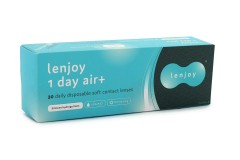
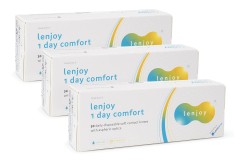
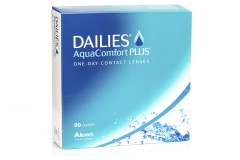
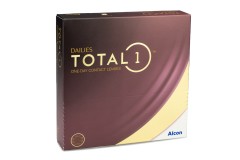
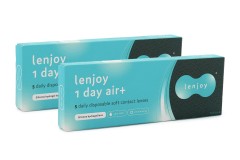
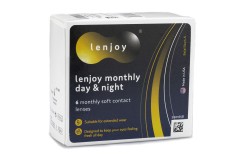
Comments